We recommend children have their first comprehensive eye exam between 6 and 12 months of age, with follow-up appointments at key developmental stages. […]
When Should Kids Go to the Eye Doctor?
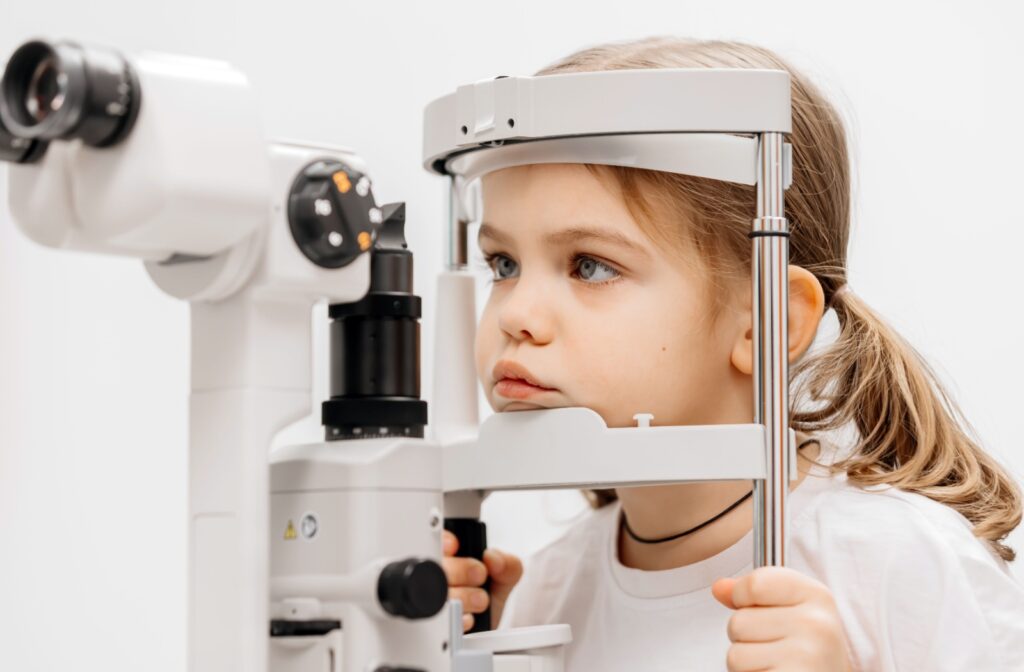


We recommend children have their first comprehensive eye exam between 6 and 12 months of age, with follow-up appointments at key developmental stages. […]
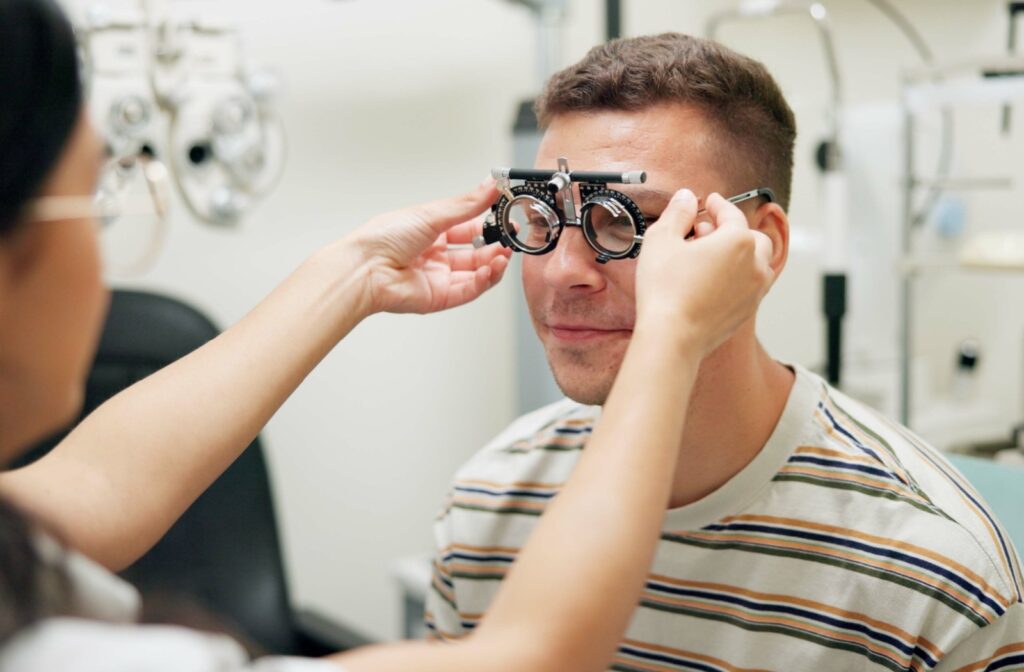
A comprehensive eye exam is a full check-up of your vision and eye health designed to detect issues early, even before symptoms appear. […]

During a typical kid’s eye exam, your optometrist will assess vision clarity, eye alignment, and overall health, using tools and tests tailored to your child’s age and needs. These exams are designed to be engaging and comfortable, creating a positive experience while identifying potential concerns early. […]
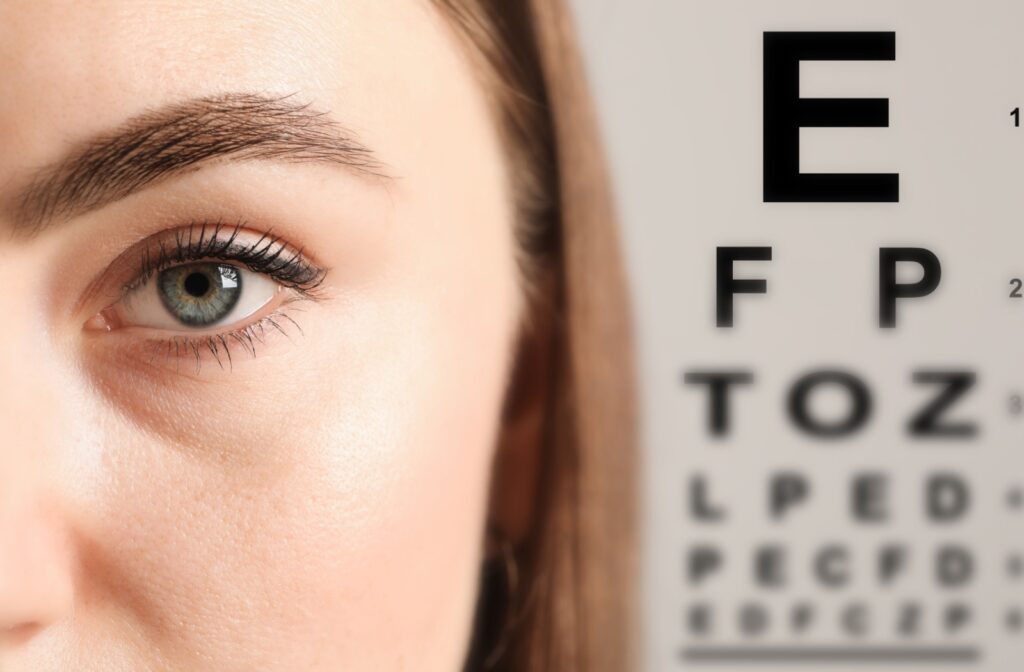
Eye exams help maintain good eyesight and eye health by detecting conditions such as cataracts, glaucoma, age-related macular degeneration, and diabetic eye diseases. […]

To prepare for your eye exam, you should try to avoid wearing makeup. A little bit is okay, but too much can hide signs of underlying problems like discoloration or irritation. Even if makeup is part of your daily routine, try to keep it light. […]
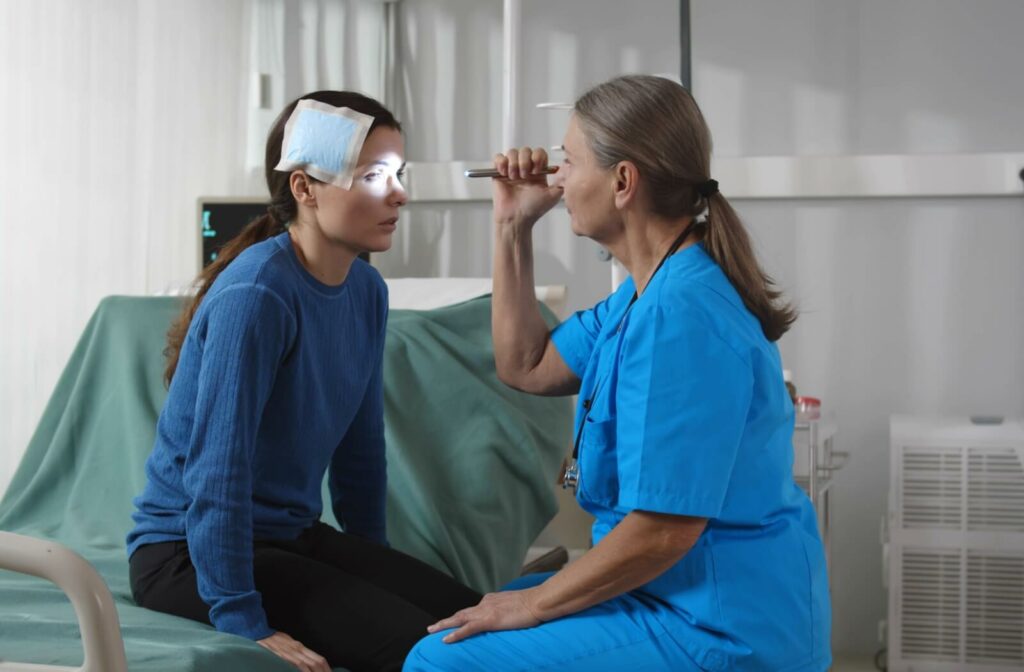
An eye emergency can be stressful, and getting the right care quickly is important. Whether you’re experiencing sudden vision changes, have a bothersome eye infection, or are a worried parent with a child who has an eye injury, your optometrist is here to help. Optometrists are trained to handle a wide range of eye emergencies. […]
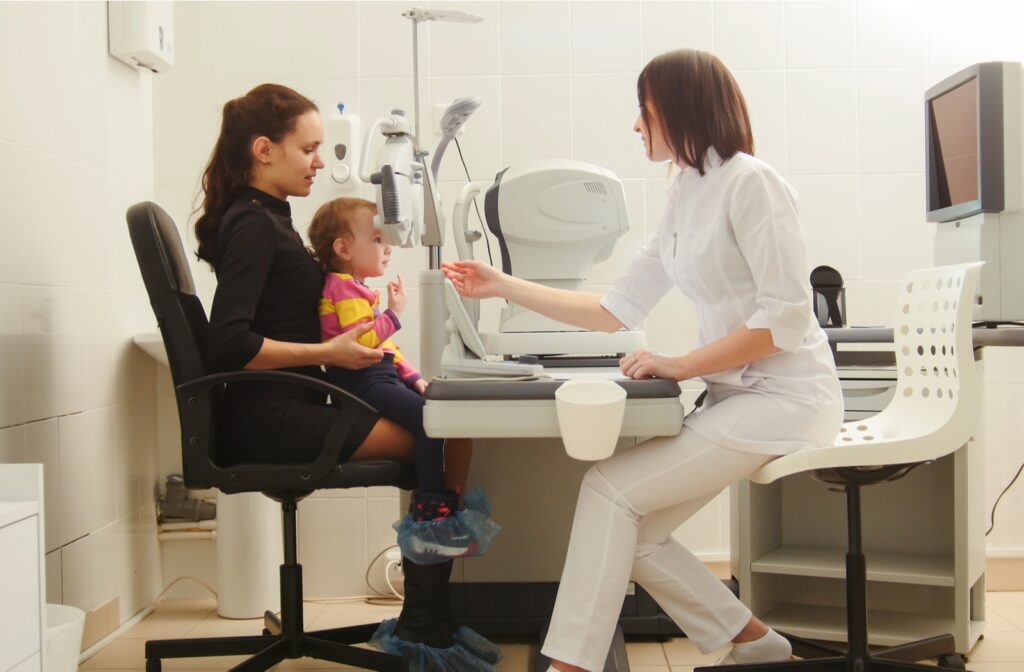
ildren’s eye exams are more than an evaluation of their sight. Our friendly eye doctors in Scottsdale can recognize the signs of eye diseases and vision problems. We know how to make the conversation accessible and fun for kids of all ages. So when it’s time for their first eye exam, we have the tools to examine their eye health while keeping them comfortable. The American Optometric Association (AOA) recommends that a child’s first eye exam be between 6–12 months of age if they are a low-risk patient.
[…]
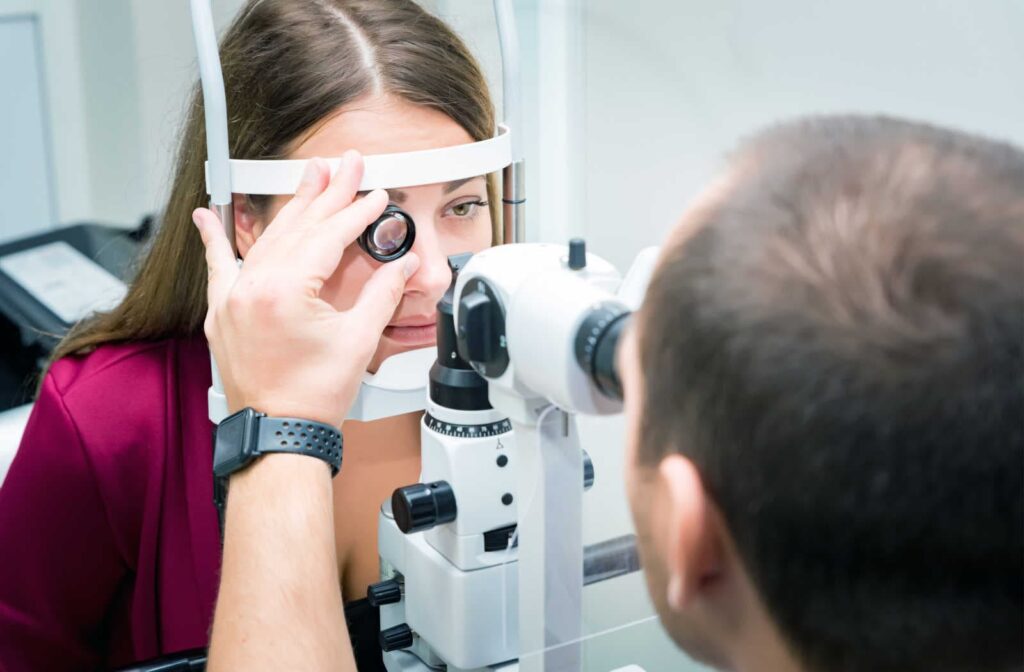
If you’re living a busy life, it can seem easy to keep pushing off these regular check-ups, thinking you don’t have time to fit one into your schedule. However, a comprehensive eye exam only takes 20–60 minutes, but the wellness and peace of mind it gives can last a lot longer. […]
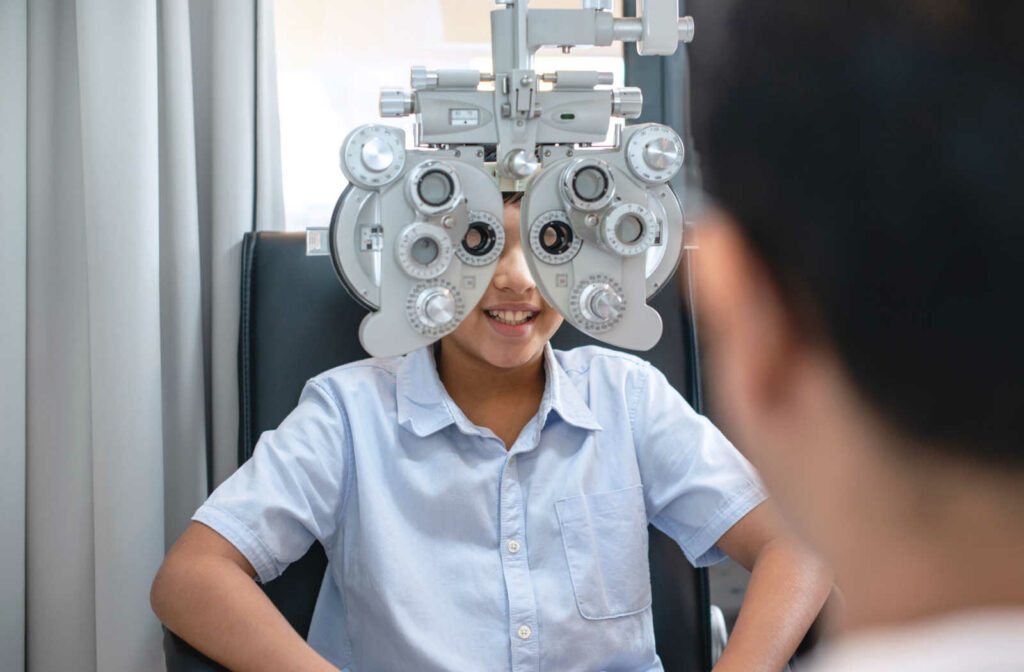
Children go through incredible growth and development, which includes their eyes. Children should see their optometrist while they’re still growing to stay on top of their eye health. But the schedule for when children should get their first eye exam and how often after that is not set in stone. This article explores the recommended […]
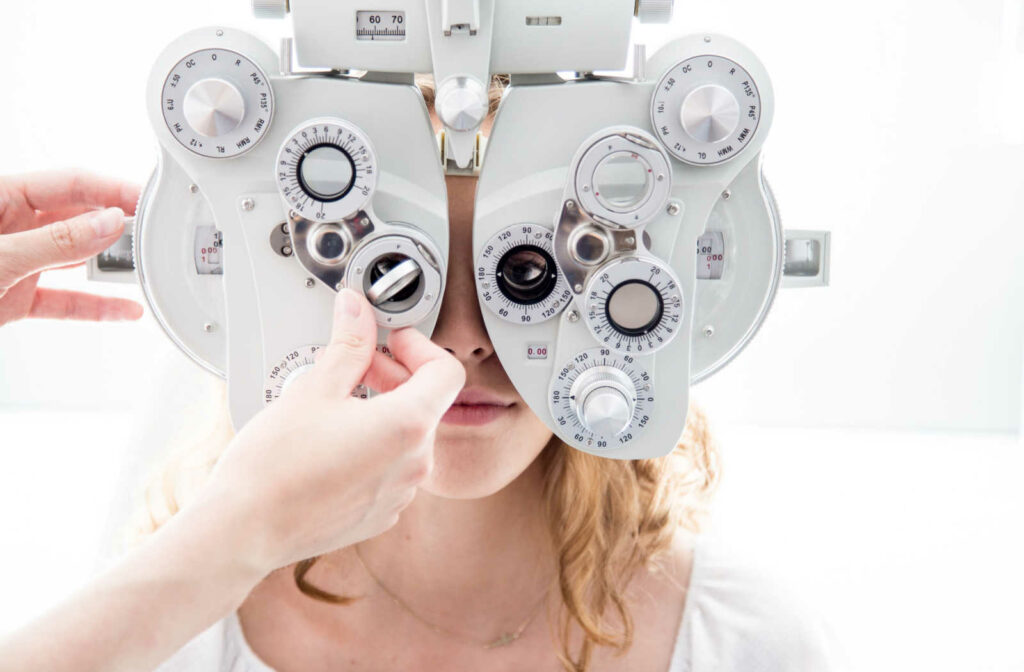
An optometrist or ophthalmologist will perform a refraction test to determine if you have a refractive error in your vision that causes you to be nearsighted, farsighted, or astigmatic. These refractive errors can cause blurry vision at various distances.
Refraction eye tests are performed by eye doctors to determine the strength of the prescription you need for glasses or contact lenses to address your specific refractive error and allow you to see clearly.
During the examination, your doctor evaluates how light enters your eyes and where it lands in relation to your retina. This can be accomplished by shining a light into your eyes or using a phoropter tool.
Light refracts in front of your retina in nearsighted eyes, resulting in blurry distance vision.
Light refracts behind the retina in farsighted eyes, resulting in blurry up-close vision.
Light is scattered in astigmatic eyes, resulting in overall blurry vision […]